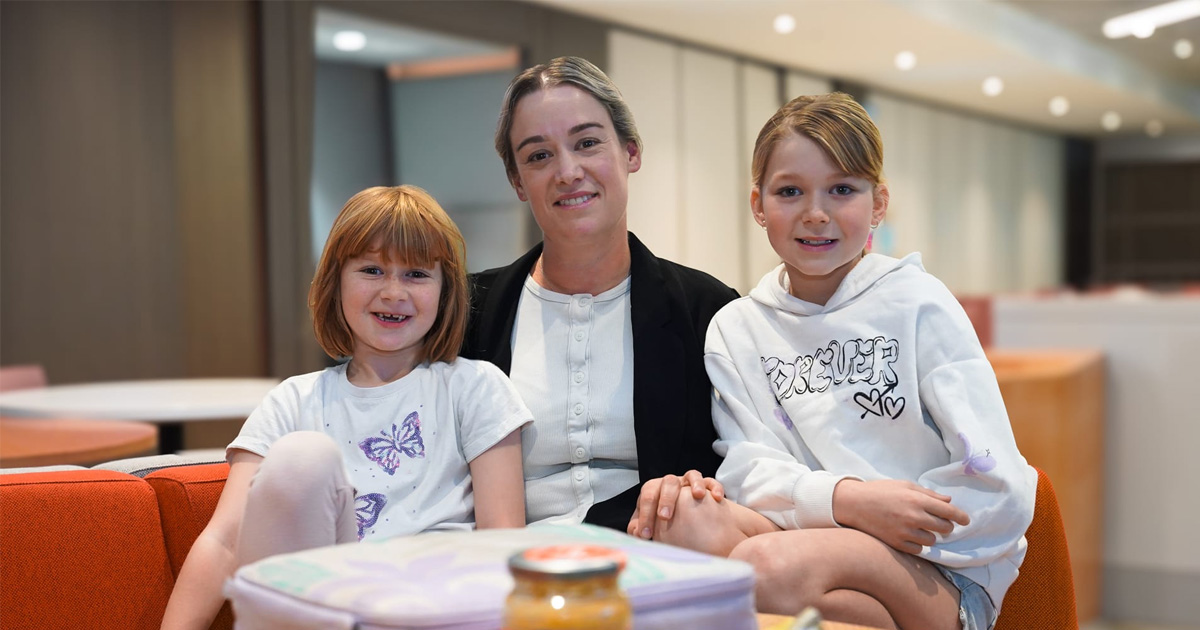Search
Research
Infant Diet Recommendations Reduce IgE-Mediated Egg, Peanut, and Cow's Milk AllergiesMeta-analyses of randomized controlled trials have found that introducing eggs and peanuts earlier during infancy reduced egg and peanut allergy risk. Hence, infant feeding advice has dramatically changed from previous recommendations of avoidance to current recommendations of inclusion of common food allergens in infant diets.
Research
Maternal Allergic Disease Phenotype and Infant Birth Season Influence the Human Milk MicrobiomeEarly infancy is a critical period for immune development. In addition to being the primary food source during early infancy, human milk also provides multiple bioactive components that shape the infant gut microbiome and immune system and provides a constant source of exposure to maternal microbiota. Given the potential interplay between allergic diseases and the human microbiome, this study aimed to characterise the milk microbiome of allergic mothers.
Research
Phage cocktail amikacin combination as a potential therapy for bacteremia associated with carbapenemase producing colistin resistant Klebsiella pneumoniaeThe increasing occurrence of hospital-associated infections, particularly bacteremia, caused by extensively drug-resistant (XDR) carbapenemase-producing colistin-resistant Klebsiella pneumoniae highlights a critical requirement to discover new therapeutic alternatives. Bacteriophages having host-specific bacteriolytic effects are promising alternatives for combating these pathogens.
Research
Comparing Skin and Serum Testing to Direct Challenge Outcomes in Children With beta-Lactam AllergiesThere is a scarcity of prospective studies investigating the relative roles of skin prick and intradermal testing, serum specific IgE, and extended oral challenges in diagnosing children with reported β-lactam allergies.
Research
World Allergy Organization (WAO) Diagnosis and Rationale for Action against Cow's Milk Allergy (DRACMA) guidelines update – X – Breastfeeding a baby with cow's milk allergyCow's milk allergy is rare in exclusively breastfed infants. To support the continuation of breastfeeding an infant after diagnosis with a cow's milk allergy, it is critical to examine the evidence for and against any form of cow's milk elimination diet for lactating mothers. In this narrative review, we highlight the lack of high-quality evidence, hence subsequent controversy, regarding whether the minuscule quantities of cow's milk proteins detectable in human milk cause infant cow's milk allergy symptoms.

News & Events
New evidence shows timely introduction of peanuts and eggs reduces allergy risksFamilies who introduce peanut butter and eggs to their baby’s diet at around six months of age can significantly reduce the chances of them developing a life-threatening allergy, according to a new study published in the Journal of Allergy and Clinical Immunology – In Practice.
Research
Patient-related factors impact the implementation of inpatient antibiotic allergy delabelingThe clinical consequences of an antibiotic allergy label are detrimental, impacting health care delivery and patient outcomes. We assessed hospital inpatients with intent to offer free antibiotic allergy labeling assessment within a randomized controlled trial. We sought to determine the feasibility of establishing an adult antibiotic allergy delabeling service in a Western Australian tertiary public hospital.
Research
Antibodies in breast milk: Pro-bodies designed for healthy newborn developmentThis manuscript sheds light on the impact of maternal breast milk antibodies on infant health. Milk antibodies prepare and protect the newborn against environmental exposure, guide and regulate the offspring's immune system, and promote transgenerational adaptation of the immune system to its environment.
Research
Two-year post-treatment outcomes following peanut oral immunotherapy in the Probiotic and Peanut Oral Immunotherapy-003 Long-Term (PPOIT-003LT) studyFew studies have examined long-term outcomes following oral immunotherapy; none have examined long-term risks and benefits associated with distinct clinical outcomes (desensitization, remission).
Research
Role of antenatal maternal dietNutrition is a modifiable lifestyle factor that may play a role in allergic disease prevention. This article summarizes current evidence on the antenatal diet as a consideration for strategies to prevent child food allergy. As eczema in early infancy substantially increases the risk of food allergy development, the effects of maternal dietary intakes during pregnancy on infant eczema outcomes will also be discussed.
